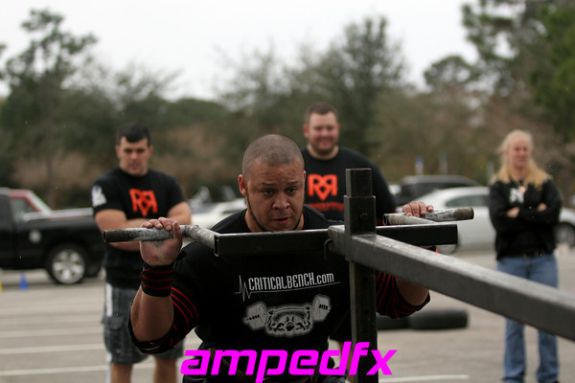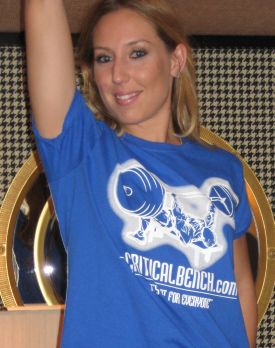This Guy Accused Me of Not Being Qualified
& Calls My Routines "Dangerous"
by Shin Ohtake creator of Max Workouts

I recently received an email from a concerned individual who criticized my training methods and qualifications. Here's what the email said:
"Please stop sending me your e-mails. I find your guidelines on strength training to be potentially dangerous and your qualifications, to give this advice, dubious."
Huh? I find it puzzling that he so openly criticized my training techniques even though he has never seen or done my program. And just as crazy as that, he accused me of not qualified and dubious to be giving advice. I mean, really?
Truthfully, I rarely get offhanded emails like this and if I do, I almost always ignore them. But I thought I would take this opportunity to explain the basis of my MAX Workouts program, explain why it's NOT dangerous and why it WILL help you lose weight and get lean safely. This emailer's grave concerns are premature and unfounded. Hopefully this will ease his mind and reassure him that I am not endangering the lives of innocent people (sheesh!). The advice I give is based on science, proven studies, fact-based articles and books written by qualified experts, and my two decades worth of higher education and real world experience.
The main principle on which my MAX Workouts program is based on (drumroll please)... producing power. Power (in physics terms), is the amount of work done in a given period of time. Work is measured by the amount of energy it takes to move a weight over a certain distance. And so the faster you can move an object over a given distance, the more power you produce. Since producing more power requires more energy, a workout program that is designed to maximize power will help you burn more fat and calories. And you know that that means...more weight loss.
Power is intensity. 
This is why the workouts in the MAX Workouts program are short in duration and higher in intensity. The more intense the effort, the more power you produce. And since intensity is best achieved in shorter durations, the workouts are all designed around that concept. If the duration is too long, the level of intensity decreases and you won't be able to maximize the benefits of each workout.
Intensity is subjective and it varies from person to person. However, there are measurable variables that will help you objectively increase intensity. So let's take a look at what these variables are and how you can modify them to increase your power and intensity.
The 3 main variables are:
1. Weight
2. Speed
3. Rest Interval
Here's how to play around with the variables to increase your intensity:
- Increase the weight you're using in an exercise, but try not to slow down your tempo or the rate at which you're performing the exercise.
- Increase the speed at which you perform the exercise. For instance, if it takes you 30 seconds to do 10 Press Ups, try to do them in 25 seconds. Don't think you'll feel the difference by subtracting just a mere 5 seconds? Try it. The key with speed though, is to keep good form. Don't cheat on the range of motion.
- Decrease the duration of the workout or set. This is best applied when doing a circuit training format.
- If you're doing a set that involves 3 different exercises, minimize the break between exercises and try to finish the set faster than before. Again, as mentioned above when your shortening the rest between exercises, you want to make sure that all exercises are done correctly with full range of motion and with good form
These are just some ways you can increase your intensity and power to maximize the benefits of your workout, which ultimately gets you better results faster.
The other great thing about these kinds of workouts is that they're scalable to fit your own level of fitness. You can play around with all of the variables I suggested above and find the right intensity for you. Once you've found it, make sure to try and keep progressing for at least 3 weeks before you change up your routine. This should give your body enough time to get used to the exercises in the workouts and allow you to increase your intensity safely. This is why I use a 3 week workout cycle in my MAX Workouts program-it's just enough time to allow safe, but significant progression. Plus, the 3 week cycle is short enough to keep your body guessing so you won't hit a plateau.
So why did I choose power instead of endurance or strength?
Because power is the best indicator of fitness.
If you take out skill, technique and strategies out of a sport and looked at what the best athletes have in common... it's power.
Power is the underlining constant between all of them, including pure endurance athletes. Look at Lance Armstrong, his endurance level was measured to be no more than any of the other top cyclists, but what made him stand out was his power output!
But let's look at you and I-regular people that want to burn fat, build lean muscle and get in shape. Well, if you look at an athletes body, it's no different than ours except they're in better shape. Physiologically their bodies work the same way. The way they get into shape and get conditioned is no different (and should be no different) than us regular folks. So outside of all of the sports specific skill related training they do, why should we train any differently from them? How do professional athletes stay in shape during their off season? It's through the same concept that I apply in my programs. Training to produce power is effective, efficient and results producing for all of us. If you want to lose weight and get lean, you have to get fit. And the better your fitness level is, the better you're going to look.
Potentially dangerous workouts?
The emailer had concerns about my advice being "Potentially dangerous..." and looking back at all of the articles I've written, I don't ever recall writing anything that can even remotely be construed as being dangerous. But since it was mentioned, I figured I'll talk about how to avoid unnecessary "danger" when you're working out.
First and foremost, always learn good form and technique. I've posted several articles in the past on how to avoid injuries by doing exercises properly. It may seem a little boring and repetitive, but taking time to learn proper form will help you progress much quicker in the long run. If you're already following my program, be sure to check out all the demo videos or step-by-step pictures of the exercises prior to starting. Check out some tips I gave in past articles about saving your kneesx and lower back. Even applying just some of these tips can help you avoid unnecessary injuries and help keep you on the right track to achieve your goals. The takeaway point is this: never skimp on form. When and only when you have learned proper form, should you increase your intensity.
Second, don't lift more than you think you can. I always tell clients to check their egos at the door before they start because it'll get in the way of a good workout. Now, I'm not saying don't challenge yourself. But, you should choose a weight that's manageable at first, then slowly progress according to your own pace. I'm here to encourage, motivate and push you, but only you truly know your limits. Listen to your body.
Third, since all of my workouts are based on circuit training and interval training formats, rest intervals are always suggested. If the rest intervals are too short, make sure to increase them according to your recovery needs.
Why should anyone listen to me?
Lastly, the emailer thought my "qualifications, to give this advice, dubious..." I'm not going to dwell on this fact because I've gone through too many years of university schooling and too many years of practicing and training to have to prove to this accuser (who's never even looked at my program) whether I'm qualified to give advice or not. My clients and readers know me better. Yes I have a university degree (two, actually) and have had all kinds of fancy acronyms behind my name, but I'm also a big believer that credentials don't necessarily make you credible.
That being said I want to leave you some food for thought...
Is someone that drops out of university less qualified to build the largest most influential company in our time than someone that graduated? Bill Gates may have something to say about that.
If credentials determine credibility, does that mean all self made and self taught mentors are not reliable? If so, how come so many people listen to and emulate these types of people? Anthony Robbins is self taught and arguably the most successful self improvement coach today. If you spent 4 years and $100,000 dollars getting some letters behind your name, you may have a different opinion of Anthony Robbins, but does it make him less qualified or reliable?
If you don't already know, most trainers can become certified in a weekend or by taking a test that they cram for in a few weeks just to get the letters behind their name and be "certified". Does that make them more qualified or reliable than someone that's been in the field with first hand experience? You need knowledge to apply, but without application it's just theory.
In the end, I believe what determines qualification and reliability isn't the letters behind your name or what school you graduated from. It's results. Results are what brings creditability. If you can provide results for people that follow your advice or your program, then I'd say your qualified. If you're wondering if I'm qualified or not, "the proof is in the pudding", as they say. Follow MAX Workouts from start to finish and see for yourself how fast your body and mindset change. I wouldn't be able to promise a 60-day money back guarantee and stay in business if people weren't getting results. 'Nuff said.
Shin Ohtake is the author of the world-famous fitness program, MAX Workouts. To learn more about how you can get ultra lean and toned with shorter workouts, visit http://www.MaxWorkouts.com
More Articles By Shin Ohtake
Return to the Workout Articles Archive
|